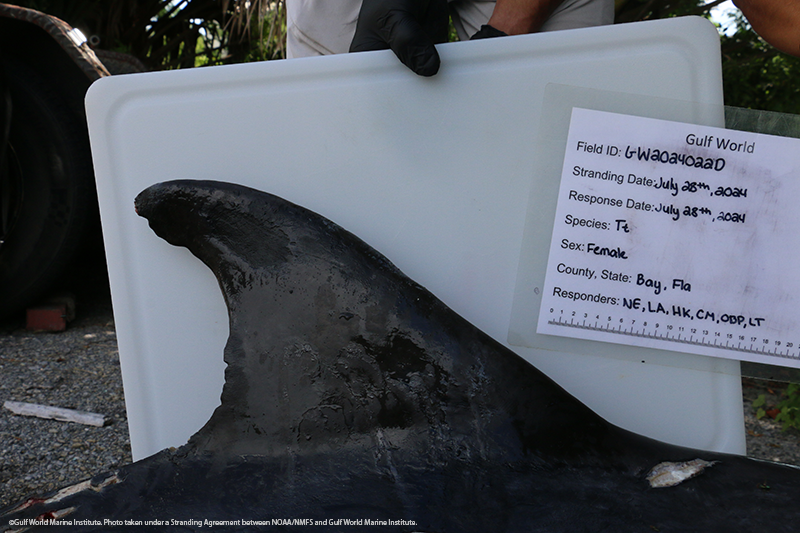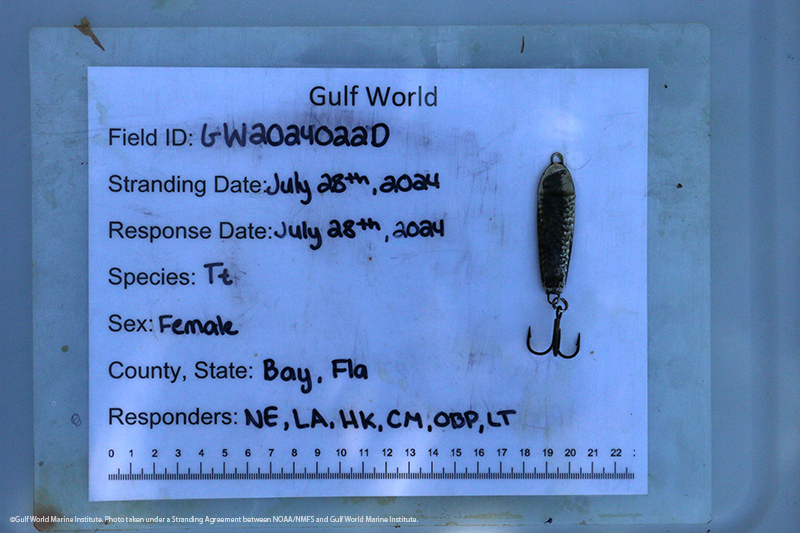Dolphin ID Catalog Uncovers Life History of Dolphin Recovered on North Florida Beach

In July 2024, Gulf World Marine Institute (GWMI) submitted dorsal fin pictures of a deceased bottlenose dolphin they recovered at Panama City Beach to the Gulf of Mexico Dolphin Identification System (GoMDIS), an online archive for dolphin ID catalogs in the Gulf of Mexico. This repository, which is curated by SDRP, allows us to ID dolphins throughout the Gulf and document things like changes in ranging patterns, life histories and even discover the origin of stranded dolphins like the one recovered by GWMI.
We discovered that this female dolphin had been documented in several dolphin research catalogs from the Panama City Beach region over the years, including the National Marine Mammal Foundation, GWMI and SDRP’s own catalog from that area.
This dolphin was first documented 20 years ago, with sightings beginning in 2004 by Dr. Thibaut Bouveroux, and her history included multiple observations with tour boats and swimmers in the water, being harassed by boats and jet skis and exhibiting begging behavior.  A necropsy, or animal autopsy, found that she had ingested a 3-inch treble hook and lure, which were in her forestomach and likely contributed to her demise. In the week prior to her death, she was observed with an emaciated body condition, swimming slowly and with multiple shark bites.
A necropsy, or animal autopsy, found that she had ingested a 3-inch treble hook and lure, which were in her forestomach and likely contributed to her demise. In the week prior to her death, she was observed with an emaciated body condition, swimming slowly and with multiple shark bites.
In addition to helping researchers track dolphins among different locales, GoMDIS also allow us to track individuals over time. It’s especially troubling when we discover animals that have died due to human-related causes.
- Please help keep wild dolphins and other marine life safe, whether you’re in Sarasota, Panama City or some other locale around the world!
- If you’re fishing and see dolphins in the area, please reel in and wait for them to pass through. Some dolphins have learned to be opportunistic feeders, targeting anglers’ catches and bait. Reeling in and not reinforcing this behavior will help save them from ingesting gear or getting entangled in line, which can lead to a slow and painful death.
- Learn more about dolphin-safe fishing here




